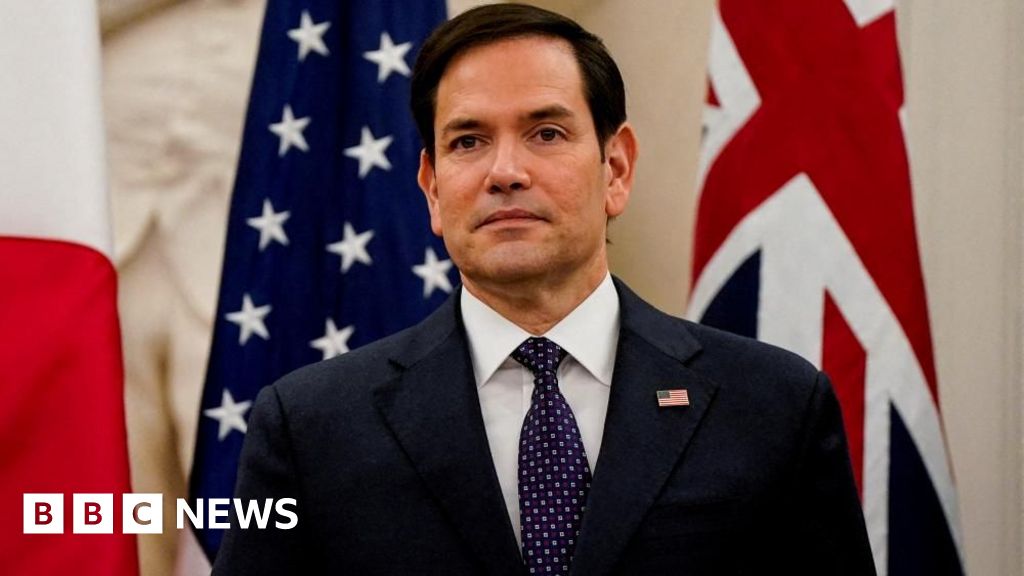ARTICLE AD BOX
 Image source, Pawel Supernak/EPA-EFE/REX/Shutterstock
Image source, Pawel Supernak/EPA-EFE/REX/Shutterstock
Law and Justice party MPs began their protest as parliament backed a resolution calling for objectivity at TVP
By Adam Easton
BBC News, Warsaw
MPs from Poland's opposition Law and Justice (PiS) party are occupying the headquarters of the state TV company.
The lawmakers object to moves by the new coalition government to depoliticise Poland's public media.
The protest at TVP came as parliament in Warsaw was adopting a resolution on Tuesday night calling for independence, objectivity and pluralism in public TV.
Instead of voting, about 100 PiS MPs headed to the Warsaw headquarters of broadcaster TVP.
They began a sit-in protest to defend "media pluralism" and PiS leader Jaroslaw Kaczynski stayed at the protest all night, leaving the building after 06:00 local time (05:00 GMT).
He said the protest would continue with teams of ten PiS MPs operating in shifts inside the building. On Tuesday night, TVP Info, the 24-hour news service, symbolically changed its headline strap from red to black.
In response, the new minister of culture, Bartlomiej Sienkiewicz, dismissed on Wednesday the current heads of TVP, Polish Radio and the state news agency PAP and new management boards have been appointed.
The new pro-EU government, led by Donald Tusk, was eventually sworn in a week ago, after winning October elections on a promise to overturn years of PiS reforms.
The former president of the European Council has moved quickly to dismiss PiS appointees from government bodies. On Tuesday he appointed new heads of state security, intelligence and anti-corruption offices. He described the new chiefs, including two women, as "very good, loyal and disciplined".
State media is an important tool in Poland, around a third of people rely solely on it for their news, having no access to private broadcasters.
Image source, EPA
Image caption,Prime Minister Donald Tusk has moved quickly to dismiss appointees of the previous government from state bodies
By law, it should not serve the political interests of any one party. In practice, it is normally partial to whichever government is in power.
After taking office in 2015, PiS went much further than any previous government in controlling TVP's narrative.
It changed Poland's media law and set up a rival media regulator to allow it to sack management boards and pack the public media with journalists sympathetic to its policies.
While it was doing this, it enacted legislation to increase its political control over the judiciary and the civil service. It put its own people in charge of the security services and state-controlled companies.
TVP's main evening news broadcasts, and TVP Info, were transformed into a propaganda machine for the PiS government. Many Poles old enough to remember the crude propaganda of the communist-era authorities in the 1970s and '80s said TVP's methods were even worse.
PiS set out to "repolonise" Polish media and used the country's state-controlled energy company Orlen to buy Poland's largest regional media outlet, the German-owned Polska Press, taking political control of its newspapers and websites.
It also passed legislation to limit foreign ownership of the media, leading Washington to protest the bill was aimed at the US-owned TVN. The protest caused President Andrzej Duda to veto the bill.
In response to PiS's actions, privately owned newspapers and broadcasters, such as TVN 24 news, became markedly more critical of the PiS-led government.
Under the previous government, Poland dropped from 18th to 57th place in the World Press Freedom Index.
So how can its former leader, Mr Kaczynski, say the protest is defending democracy and media pluralism?
In his definition, media pluralism will be reduced by PiS losing control over TVP. For him, TVP acts as a conservative bulwark against the private broadcasters supporting the new coalition government.
Mr Tusk has learned from PiS's eight years in power. When he was first elected prime minister in 2007, he left a PiS appointee, Mariusz Kaminski, in his post as head of the Central Anti-Corruption Bureau until 2009.
Mr Kaminski served as interior minister under the recently departed PiS-led government.
However, the Tusk government may face resistance to its planned changes from the Polish president, Andrzej Duda, a PiS ally, who has the power to veto legislation.
Mr Duda wrote to the parliamentary speaker on Tuesday evening saying any changes to the state media must be carried out in accordance with the law.
Presidential adviser Marcin Mastalerek said Wednesday that the parliamentary resolution had no legal impact on state media.
Polish newspaper Rzeczpospolita reported on Wednesday that the coalition government did not plan a wide-ranging purge of TVP personnel, saying up to 60 employees, who violated journalistic standards, would lose their jobs. The newspaper said the government planned to make the changes by Christmas.

 1 year ago
17
1 year ago
17








 English (US) ·
English (US) ·